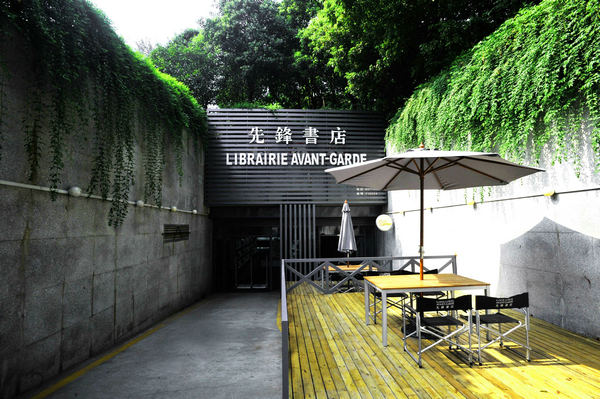 |
|
Qian Xiaohua has been at pains to create an air of academic solemnity at his bookstores. [Photo provided to China Daily] |
Besides poetry, Qian has persisted with another principle he has stuck to over the past 21 years, even during the hard times: to sell only books about philosophy and the arts-but never best-sellers, which he claims "harm the soul of a nation."
Nowadays, in the face of major competition from online retailers, many bookstores are forced to mostly stock best-sellers as sell coffee and fruit juice to help them turn a profit.
"I don't think it makes much sense for those kinds of bookstores to exist. A good bookstore should become a symbol of a city's spirit. It can help to improve the quality of people's lives, and allow the nation to develop and prosper," he says.
But Qian is aware that like any other any business, a bookstore still needs to survive financially. Librairie Avant-Garde has tried a variety of new business models over the past two decades in an attempt to realize its founder's ambitions.
In May 2008, many bookstores in China were forced to close down as e-commerce boomed and e-books grew in popularity. But Qian started his own company making culturally creative products, including bags, postcards, notebooks and posters. He also opened a cafe.
In the first year that Qian started the new business model at Librairie Avant-Garde, revenue generated by the cafe and product sales accounted for 30 percent of the bookstore's total sales, and 40 percent of its profits. Now these two sections make up 60 percent of annual sales and 50 percent of annual profit for the bookstore.
"China's bookstores are now going through a phase of creative transformation, from traditional to multifunctional. For us, we sell coffee and more than 3,000 kinds of cultural products. They diversify our products and services, attract more fashionable people, and promote the sales of books," Qian says.
However, at Librairie Avant-Garde, Qian keeps 300 free seats for readers, and the bookstore, closed to Nanjing University, is called the second library for students.
Qian stresses that the essence of a good bookstore still lies in the quality of its books. In this age of consumerism, publishing houses in China are producing less books about literature and the arts, than comparatively less serious academic books, which Qian says is not conducive to the country's development.
"I truly admire Liu Suli, the founder of Wansheng Bookstore in Beijing. He has been persisting in his humanist ideals, promoting academic literature and the fighting for soul of the nation."